Science of baby sleep
0 min read
9-month-old baby sleep guide

Cradlewise Staff
Night sleep
Daytime naps
Total sleep
7-10 hours
4-5 hours
11-15 hours

Night sleep
7-10 hours

Daytime naps
4-5 hours

Total sleep
11-15 hours
By 9 months old, your baby should be sleeping longer stretches at night (finally!) and their wake windows (the time they are awake between naps) are stretching out as well. But things like new milestones, illness, and disruptions to your routine could all impact sleep.
Another big culprit of interrupted sleep for a 9-month-old baby is the 9-month sleep regression. Yup—just like in the past, your baby may experience one this month, due to increased development and growth. With babies and children, it can feel like just when you get a handle on one stage, the next one comes and changes everything.
But that’s ok, because knowing what to expect can make everything easier. Here’s more on what might be in store this month, like new developments, milestones, and a sleep routine that works for everyone.
9-month-old baby milestones for sleep
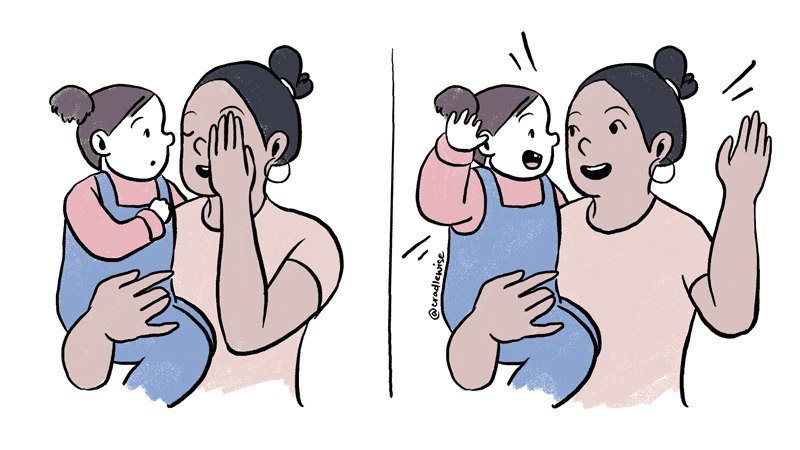
At 9 months old, your baby will be getting between 12 and 15 hours of sleep per day, according to the Sleep Foundation. Those hours will be broken up between nighttime sleep (around 11 hours) and daytime sleep (around 4 hours). But every baby is different, so some babies may need more, especially during a growth spurt or when reaching a significant milestone.
What 9-month-old baby milestones should you expect? The Centers for Disease Control and Prevention (CDC) lists specific physical and social milestones for 9-month-old babies that include showing fear around strangers, displaying emotions through facial expressions, transferring objects from one hand to another, and sitting up solo (here’s the full list).
Keep in mind that every baby will develop on their own timeline. But if you have concerns about the 9-month milestones, check in with your pediatrician.
Activities for a 9-month-old
Activities for a 9-month-old
Here’s a little secret: play at this age is the “sweet spot” of parenting a baby, because they’re not yet a toddler on the run. Nine-month-old babies are smiley, love laughing, and are interactive enough to engage—all without getting away or flushing anything down the toilet.
As with all of childhood, play is also very important work for babies at this age, because it’s how their brains continue to grow and develop. Peek-a-boo might be silly, but it’s actually creating new synapses and neural pathways in your baby’s brain. Pretty cool, right?
If you need ideas for play, some CDC-approved activities for 9-month-olds include games like peek-a-book (babies love the surprise element), passing a toy car back and forth, hiding objects (like under a blanket), and listening to you narrate the day (to help encourage brain development, try simple phrases like “Look at that big, red ball” or “We are folding shirts now”).
Toys for 9-month-olds
Toys for 9-month-olds
Some of the best toys for 9-month-olds are ones that spark imagination and have an element of “surprise” and exploration. At this age, your baby will love pop-out surprises or large buttons to push. Popular toys for 9-month-old babies include lightweight balls (like the Oball, which has finger holes), activity walkers or tables, and ones that help them practice fine motor skills, like a bead maze. (Here are more toy-buying tips from the AAP.)
What’s going on in your baby’s brain?
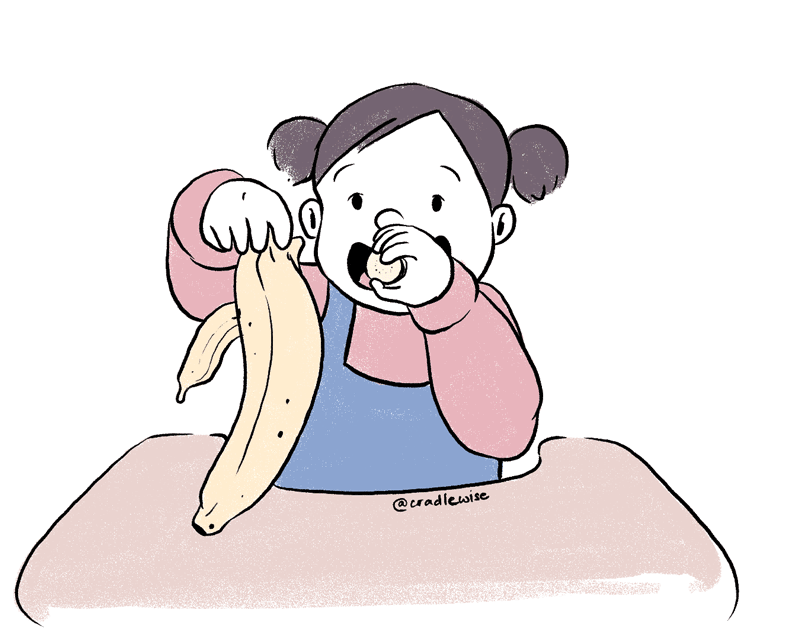
Fine motor development is huge. Those practicing baby-led weaning might notice the pincer (finger and thumb) grasp. Even this seemingly small gesture represents major brain development to recognize the food, coordinate the movement to pick it up, and then finally, bring it to their mouths.
As their brain develops secure attachments, your baby is also recognizing strangers and showing a major preference for their main caregiver.
You can also support your 9-month-old’s brain development with American Academy of Pediatrics (AAP) recommended nutrients such as folate, vitamins A and D, protein, zinc, and iron. Foods like small pieces of lean meat, avocado, small veggies, fruit, and yogurt all provide essential vitamins and minerals as well as protein.
How much should a 9-month-old sleep?
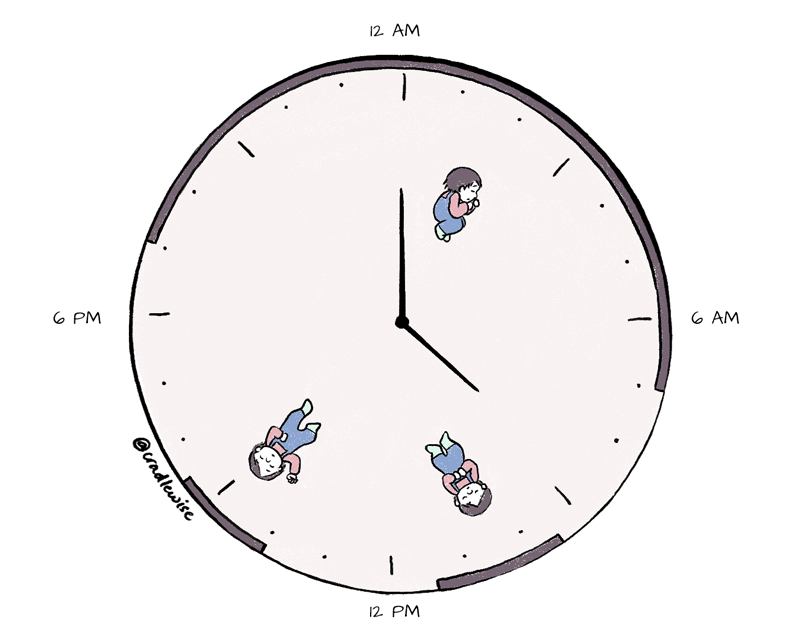
Wondering how much a 9-month-old baby should sleep? Here’s a quick look:
- Total hours of sleep: 11 to 15 hours of sleep every 24 hours; some babies may need between 12 and 14
- Wake windows: Between 2.75 and 4.5 hours of awake time
- Nap schedule: Two 2-hour naps, some babies will nap longer; at this age, most babies have dropped from 3 to 2 naps per day
Sample 9 month old sleep schedule
In general, 9-month-old babies will be more awake and active during the day and will have dropped from three naps per day to two naps per day. You should maintain a consistent bedtime routine, however.
Here is a sample 9 month sleep schedule, which you can customize to suit your little one’s needs:

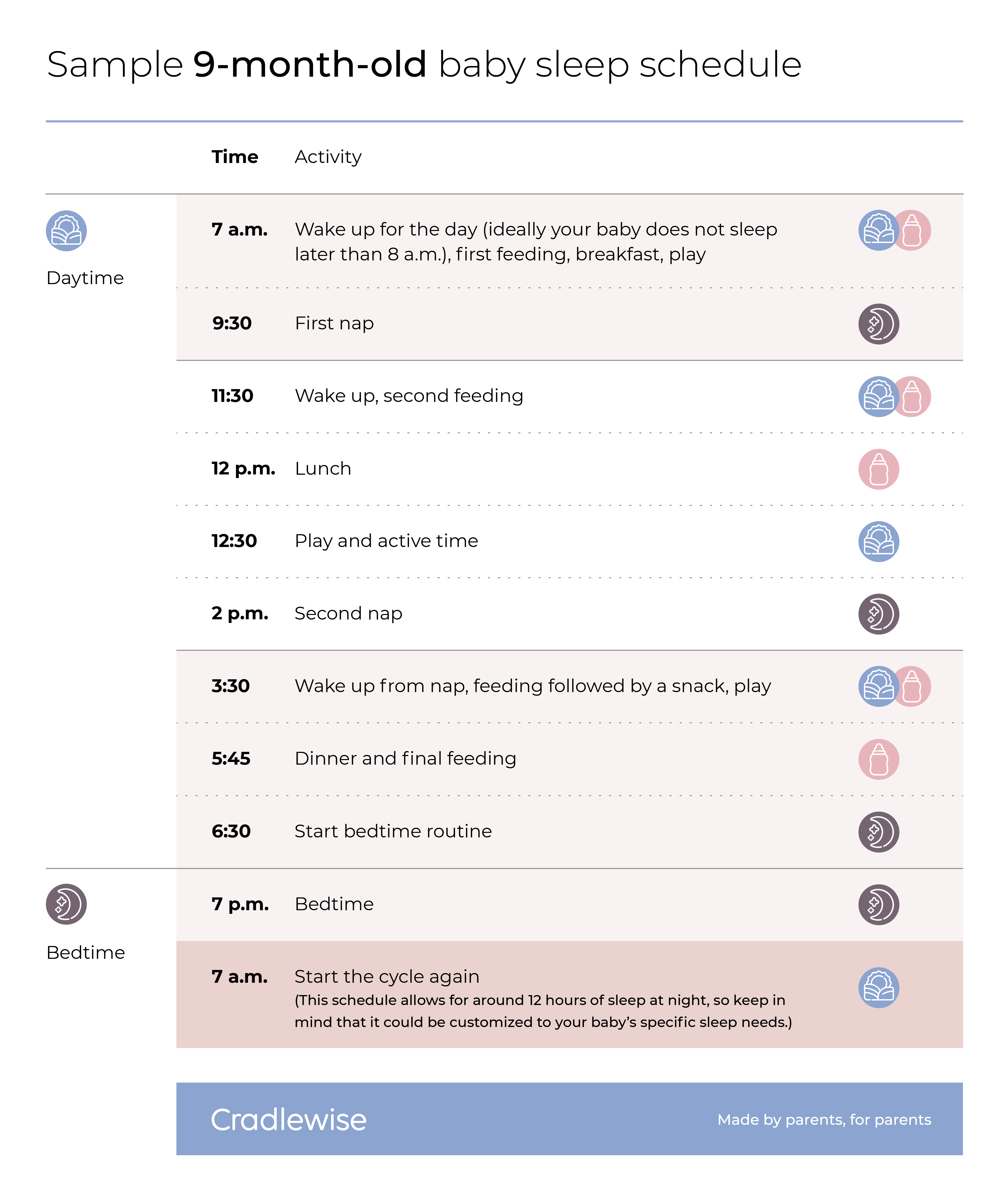
9-month-old feeding tips
9 months old does mark a time when your baby will transition to eating more solids, although a good chunk of their calories should still come from breast milk or formula. Here’s what to know about feeding a 9-month-old baby:
- How much should a 9-month-old eat?: Between 8 and 12 months old, your baby should be drinking about half of their calories per day in formula or breastmilk. That means that your baby will drink breastmilk or formula 3 to 5 times a day for a total of 30 to 32 ounces per day. If you’re breastfeeding, continue to nurse on demand.
Offer your baby the breast or bottle before food. According to the AAP, you can also offer 2 to 3 healthy snacks per day after your baby reaches 9 months old.
- How much should a 9-month-old weigh?: The average 9-month-old baby boy weighs 19.6 pounds and the average 9-month-old baby girl weighs 18 pounds, according to data from the World Health Organization.
Be sure to keep your baby’s well-child checks with your doctor, so they monitor your baby’s growth.
- How often should a 9-month-old eat?: Typically, a 9-month-old baby will want to eat every 3 to 4 hours and will have 5-6 meals and snacks per day.
At 9 months old, your baby may go through growth spurts, so they may have periods when they eat more, followed by days they eat less. This is normal and not a cause for concern, according to the AAP.
If your baby is going through a period where they don’t appear interested in eating, never force food; instead, follow their cues and offer food when they seem hungry. If there are any concerns with growth, of course, you’ll want to speak with your pediatrician.
How to help support your baby’s sleep during the ninth month
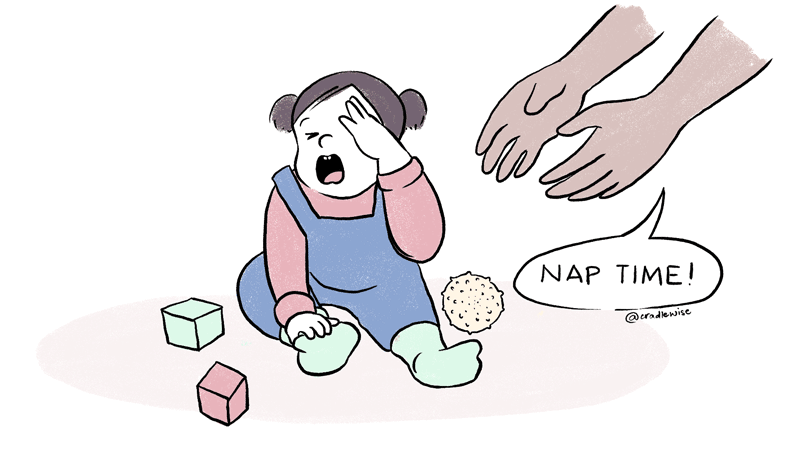
During your baby’s ninth month, it can be helpful to keep the following sleep tips in mind:
Follow your baby’s cues for naps.
Follow your baby’s cues for naps.
If your baby hasn’t transitioned from three naps to two, or you’re unsure if your baby is ready to make the switch, you can look to them for cues. These might include resisting naptime, not falling asleep at naptime, wanting to play, or refusing bedtime after a longer or later daytime nap.
Stick to a sleep schedule.
Stick to a sleep schedule.
Sleep begets sleep, so never let an active baby stay up later or skip a nap if they want to play. Instead, stick to the schedule and know that if your baby is consistently refusing to nap or go to sleep, it might mean you need to lengthen wake windows or drop a nap. Of course, with special occasions like vacations or grandparents’ visits, interrupted sleep will happen once in a while, so don’t stress too much about the occasional missed nap or late bedtime if you’re otherwise staying consistent.
Try a night light.
Try a night light.
At 9 months old, your baby is into a phase of increased social-emotional growth that started around the 8-month mark. This might mean they’re showing fear in situations that didn’t bother them before, like being alone in a dark bedroom. You can try putting a nightlight in their room to see if it helps. For some kids, it can be too distracting, others might just need it until they fall asleep.
Be consistent through sleep regressions.
Be consistent through sleep regressions.
Your baby may experience a 9-month sleep regression, which could look like suddenly resisting naptime or bedtime. This is normal and healthy, even when it doesn’t feel so positive—it’s a sign your baby’s brain is developing normally and that they are undergoing important growth. Sleep regressions are temporary, so the best way to get through them is to remain consistent with the sleep habits you have already set in place. For instance, if you have a solid bedtime routine (which you should!), don’t suddenly change it; stick to a simple ritual that might include bathtime, a story, and putting your baby down drowsy but awake.
FAQs
Q: What to feed a 9-month-old baby?
A: Apart from breastmilk and formula, you can offer mashed fruits, cooked vegetables, soft cereals, and pureed proteins like meat or beans..
Q: How much baby food for 9-month-old?
A: Typically 3 meals a day, about 3-4 tablespoons per meal, along with breast milk or formula.
Q: How much should a 9-month-old baby weigh?
A: The average weight is around 18-22 pounds (8-10 kg) for a 9-month-old baby.
Q: Can you potty train a 9-month-old baby?
A: Early potty training is uncommon and challenging at 9 months. Most children start between 18-24 months.
Q: Can you travel with a 9-month-old baby?
A: Yes, you can travel with a 9-month-old baby, but plan for their needs: feeding, naps, and comfort during the journey.
Sources:
- Recommended sleep for babies. 2022. The Sleep Foundation. How Much Sleep Do Babies and Kids Need?
- Nine-month-old baby milestones. 2020. Centers for Disease Control and Prevention. Important Milestones: Your Baby By Nine Months.
- Recommended nutrients for brain health. 2022. UCLA Health. Baby brain food: 7 foods to fuel brain development.
- Feeding milestones. n.d. Stanford Health. Feeding Guide for the First Year.
- Growth charts. 2022. World Health Organization. WHO Growth Standards Are Recommended for Use in the U.S. for Infants and Children 0 to 2 Years of Age.
- How much to feed your baby. 2022. Centers for Disease Control and Prevention. How Much and How Often To Feed.
- Feeding a 9-month-old. 2021. American Academy of Pediatrics. Infant Food and Feeding.
- Foods to feed a 9-month-old. 2022. HealthyChildren.org. Sample Menu for a Baby 8 to 12 Months Old.
- Showing fear in new situations. 2009. HealthyChildren.org. Emotional and social development, 8 to 12 months.
You may also like



